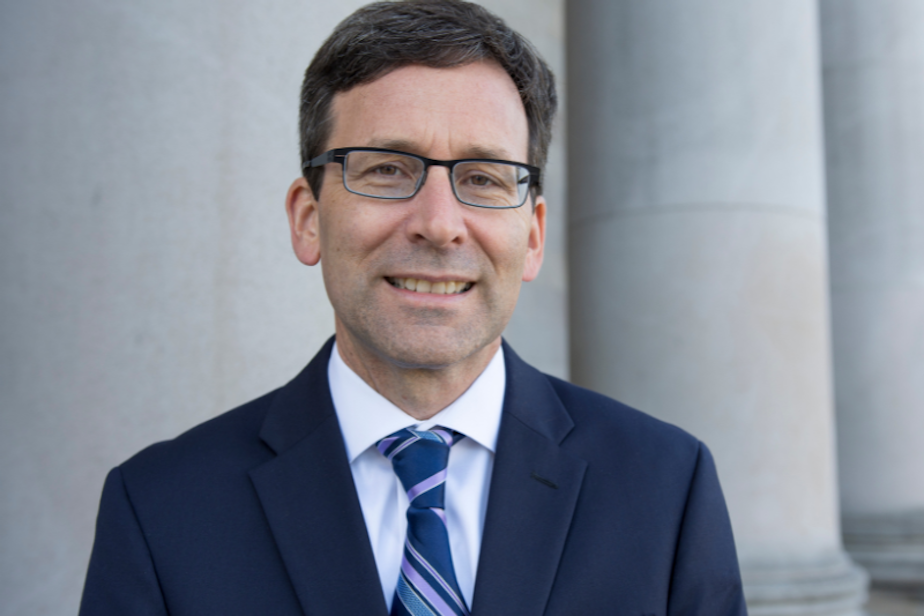Who let the Bobs out? What the Ferguson doppelgangers say about Washington’s top-two primary

Over the weekend, news broke that in addition to current Washington State Attorney General Bob Ferguson, two more people named "Bob Ferguson" would be running for governor.
By Monday's withdrawal deadline, the "Bob" party looked to be winding down. Both of the newcomer Bob Fergusons dropped out of the governor's race. But some officials say the shenanigan reveals a broader problem in the state's two-person open primary system.
In what is sure to be a crowded race for governor — the first that won't include Jay Inslee since 2013 — Attorney General Bob Ferguson announced he was running for governor in May of last year. But last week, to everyone's surprise, two more people named "Robert Ferguson," both listed as Democrats, filed to run for governor.
"One of the Robert Fergusons is an Army veteran from Graham, and another of the Robert Fergusons is a retiree from Central Washington, in the Yakima area," said Jeanie Lindasy, who's covered the issue as the state government reporter for the Northwest News Network.
Lindsay explained that the two doppelganger Fergusons were recruited to run by local conservative activist Glen Morgan, who in 2023, was awarded a Volunteer of the Year award by the state Republican Party.
"He's really taken on pridefully this role, or this reputation, as being a thorn in the side of folks on the left," Lindsay said.
Attorney General Bob Ferguson described the addition of multiple other Bob Fergusons as an attempt to confuse voters and disrupt the democratic process. While it isn't illegal for candidates of the same name to run for the same position, Ferguson cited a state law that prohibits the situation if the intent is to confuse or mislead voters. Doing so is punishable as a Class B felony.
Sponsored
Ahead of Monday's 5 p.m. withdrawal deadline, Ferguson encouraged the two alternative Fergusons to withdraw or face legal challenges under that state statute. Both ended up withdrawing their names, stating that public and legal pressure forced them out of the race. The Robert Ferguson from Yakima expressed disappointment over losing his dream to run for governor.
The attorney general said he bears no ill will toward the same-name doppelgangers, will not continue to pursue legal action, and is letting the issue rest.
In a statement, Republican gubernatorial candidate Dave Reichert said he did not support the kind of gamesmanship the stunt attempted, explaining he wanted to run a clean race. In The Seattle Times, state Republican Chair Jim Walsh blamed Washington's top-two open primary system for the chaos, calling it an "open jungle primary system" that allows for candidates to run without the accustomed bona fides of state party backing.
In contrast with a closed primary system, voters can only vote for candidates in their registered party. In contrast, states with an open primary system allow anyone to vote in the primary and general elections.
Proponents of top-two primary system argue it allows for independent voters to have a stronger voice throughout the election process, and that as a result, it allows candidates to run on more moderate platforms.
Sponsored
"Some research shows independents don't always show up anyway. But it's more about the opportunity to participate," said Christian Grose, who studies elections at the University of Southern California.
"From an elected official standpoint, it's much easier to go appeal to a narrow slice of Republican closed primary voters than it is to appeal to an open primary set of voters that could vary, but still might be conservative, and then a general electorate that's a little bit more moderate."
Critics of the top-two system say it gives parties less control over their desired candidate by opening voting to a broader electorate. As a result, more extreme candidates tend to struggle through primary and general elections, and moderate candidates tend to win in top-two states across the country and the political spectrum.
Grose said that while the recent issue of three same-named candidates running is a unique one, it isn't exclusive to Washington's primary system.
"A lot of times the top two is criticized for gameable, and it is gameable," Grose said. "But all primary systems and election systems are gameable."
Sponsored
Listen to the full Soundside segment by clicking "play" on the icon at the top of this story.





